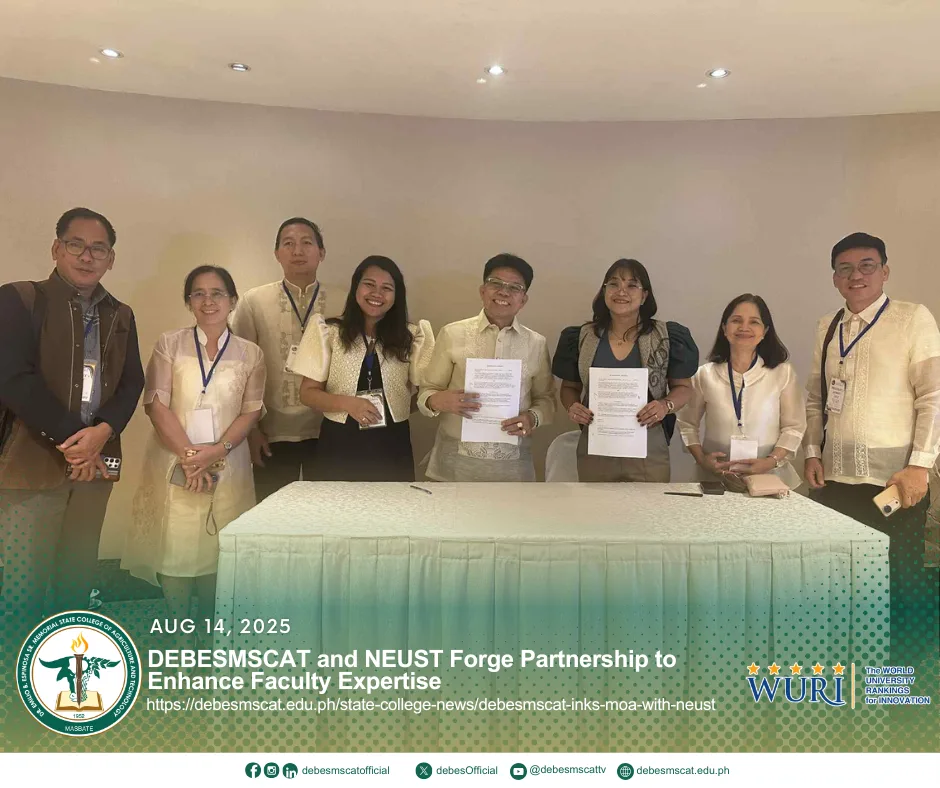
August 14, 2025 – the Dr. Emilio B. Espinosa Sr. Memorial State College of Agriculture and Technology (DEBESMSCAT) and the Nueva Ecija University of Science and Technology (NEUST) formalized a partnership through the signing of a Memorandum of Agreement (MOA) centered on faculty retooling — a strategic initiative to align teaching expertise with evolving academic standards.
The signing ceremony was led by DEBESMSCAT President Dr. Arnel B. Millesca, accompanied by his T.E.A.M: Vice Presidents Dr. Elreen A. Delavin, Dr. Erwin H. Malto, and Dr. Rodolfo B. Burac Jr.; QA Director Ms. Rocel Turco; and Administrative Officer V Mr. Phillip Cadiwa. Representing NEUST at the event was University President Dr. Rhodora R. Jugo.
This collaboration marks a significant milestone in DEBESMSCAT’s development agenda: several faculty members are now enrolled at NEUST to undergo advanced training and professional development tailored to their areas of expertise. The MOA highlights a shared commitment to improving educational quality through targeted retooling initiatives — a win for both institutions and the communities they serve.
Why This Partnership Matters
- Capacity Building: DEBESMSCAT faculty members are receiving specialized training at NEUST, enhancing their teaching capabilities and ensuring their educational delivery remains cutting-edge.
- Institutional Collaboration: By joining forces, the institutions reinforce their shared mission of academic excellence and lifelong learning, paving the way for future initiatives in research, extension, and curricular enhancement.
- Strategic Vision: With NEUST’s forward-looking leadership under President Jugo — who took office in February 2024 as the university’s fourth president NEUST+1 — this partnership aligns perfectly with NEUST’s goal of becoming a globally relevant institution.
The MOA signing between DEBESMSCAT and NEUST exemplifies proactive educational leadership and institutional synergy. As the partnership unfolds, the enhanced skills and renewed academic vision brought back by faculty will undoubtedly translate into improved learning outcomes—benefiting students, educators, and stakeholder communities alike.








 Ladies and gentlemen,
Ladies and gentlemen,

